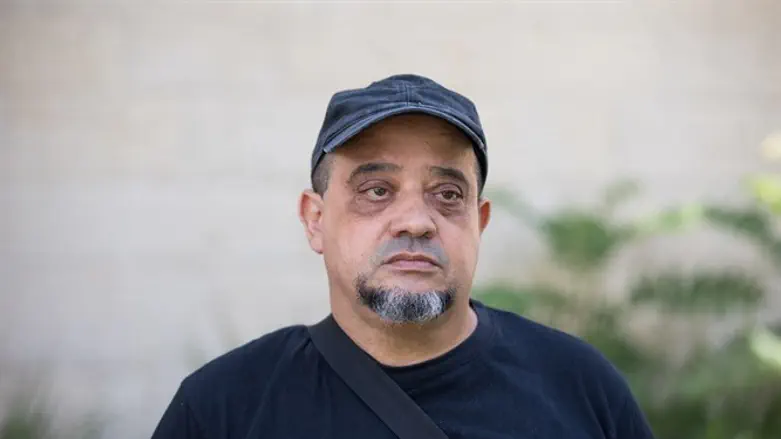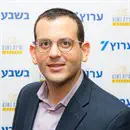
Convicted IDF soldier Elor Azariya's father Charlie responded to the military court's decision to reject the famiy's appeal and noted the conditions upon which the family would agree not to appeal to the Supreme Court.
Elor Azariya was convicted of manslaughter in January after he shot a terrorist suspected of having an explosive belt. Despite the fact that the terrorist was determined to have died from the first bullet he received, and not from Azariya's, Azariya was still tried and convicted, receiving eighteen months in prison - excluding the time he had already served waiting for his sentence.
Prior to the terror attack, Azariya was considered to be an excellent soldier.
"I, my wife, my family, and all of Israel feel disappointed," Charlie Azariya told Army Radio. "We are very disappointed. I have seen all the proofs, and if the trial had been just, my son would have been completely acquitted."
Charlie also hinted that the military court's decision was made as a result of Chief of Staff Gadi Eizenkot and then-Defense Minister Moshe Ya'alon's announcements immediately following the incident.
"The moment we're talking about a military court with judges in uniform, after a few key people said some things, the end result was already clear to everyone."
Thanking the Israeli public for their support, Charlie said, "I want to thank all of Israel for the support, encouragement, and financial support. It's unbelievabale - I've received hundreds and thousands of messages. Each person wants to help with what he can. Without this nation, we would not have made it through, my wife is underweight and I had a stroke. I want to thank all the people of Israel, we have such an amazing nation."
Regarding Eizenkot's promise to seriously consider reducing Elor's sentence, as long as a request was file, Charlie said, "We are not ruling anything out. If there is a concrete offer to drastically reduce the sentence, I believe that together with myself, Elor, and the defense, we can reach the right decision."
Elor should not have to apologize for what he did, either, his father said.
"No one can judge Elor because no one can get into his head and what he was thinking at the time terror attack occurred. The terrorist was still moving, Elor's friend was wounded and bleeding, and people were screaming in the background. If any of the judges can put themselves in Elor's shoes and honestly say that he did not act properly, then hats off to him," Charlie said.
"Regarding an apology - maybe we can apologize for the fact that the terrorist died in the end. But if the terrorist had had an explosive belt, what would the media have said? They would have said, 'where were the soldiers? How could 200 children in Hevron be killed at a Purim carnival?'
"This entire story is crazy. This wasn't a civilian event, and Elor was not involved in a fight. This was a continuous operational event, with serious signs of turning into a large-scale terror attack. Our soldiers in Hevron do not sleep at night, for fear they may be slaughtered in their beds.
"I want to say something very simple: Elor is a responsible person. I taught him to take responsibility for his actions. How can someone apologize for something that he did because he thought it was right? Because the entire system wants him to apologize and say, 'I made a mistake?' Elor said, 'I felt that there was a serious and immediate danger.'
"We're forgetting that this was part of an ongoing operation. Do you know how many terrorists are killed like this? Do you know how many soldiers are killed while our soldiers make sure that they're truly dead? This is war."
Charlie recounted how, right after the incident, Elor told him, "Dad, I'm innocent. I will fight for my innocence." Because of that innocence, there is no reason for his son to apologize, Charlie said.
"Elor has suffered a terrible injustice," Charlie explained. "And not only he has suffered this injustice - our entire family, and all IDF soldiers, have suffered with him."
"IDF soldiers don't know when they are allowed to shoot anymore, and when it is forbidden. And that's the most dangerous situation. Guys, wake up. How many more sacrifices will we have to make? When a terrorist comes to slaughter a family, like what happened in Halamish, our soldiers don't know if they should check to make sure the terrorist is truly neutralized or not."

